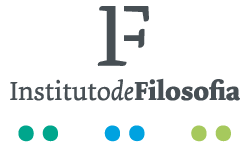Signo. Value systems in digital health technologies / Signo. Sistemas de valor em tecnologias digitais para a saúde
Program: FCT / Carnegie Mellon Portugal – 2022
Ref. 2022.15724.CMU
Funding: 69.930,40€ (IF: 19.825,00€)
From 01.01.2023 to 31.12.2023
Participant Institutions:
Instituto de Filosofia da Universidade do Porto
Fraunhofer Portugal Research — Center for Assistive Information and Communication Solutions
Carnegie Mellon University
IF Team:
José Francisco Preto Meirinhos (co-IP)
João Carlos Martins Rebalde (Investigador IF-FLUP)
Mário João Rosas Rebelo Correia (Investigador IF-FLUP)
Celeste Maria Lourenço da Silva de Oliveira Pedro (Pós doc – Instituto de Filosofia)
Irandina Afonso (Bolseira de doutoramento – Instiruto de Filosofia)
Luca Possati
Fraunhofer Team:
Ricardo Melo (IP)
Diana Liebetrau
Mariana Pereira
Joana Couto
Sílvia Rego
Advisory board
Alberto Romele (Sorbonne Nouvelle University)
Jeannette Pols (Amsterdam UMC)
Jaime Snyder (University of Washington)
Luísa Ribas (University of Lisbon)
Abstract
Underlying all technology design are values (e.g., efficiency, empathy, accountability, transparency), which may be more or less conspicuous in the designed artefact. In healthcare, there is a growing number of digital technologies which collect and display patients’ data, such as health monitoring and self-tracking. The design of visualizations for these data also holds a set of values. When these values—those of the design and knowledge, and those of patients—are not aligned, this may lead to a lack of representation, inclusiveness, or trust in the data.
In chronic diseases, digital technology and data visualization are growingly available and may play a critical role in supporting self-care and decision making. However, this increased access does not, necessarily, translate into an increase in the patients’ understanding of what those data mean within the context of their health. Unsupervised tracking of health can, in fact, lead to an adverse impact on patients’ health due to perfunctory attention to the data or over awareness of their tracking, untrustworthy sources for comparison, or a lack of understanding of the specificities of their particular case.
In Health Technology Assessment, values have been studied and considered in assessment frameworks. Furthermore, Value-Sensitive Design has identified another set of assessment tools for technology that takes values in consideration. However, while both seek to help designers and engineers to assess and create technology-based on certain values, there is not, to our knowledge, an understanding of how technology design characteristics communicate values to their users. Furthermore, both approaches tend to focus on moral values, leaving out other sets of values that may also be important in patient-technology interaction.
Another argument for the study of values concerning technology lies in the field of Explainable Artificial Intelligence (XAI). XAI has recently gained momentum due to uncertainty of how human beings will coexist with technology, which is making decisions for humans in an increasing number of domains, including health. The values behind these decisions affecting human beings must be accounted for and, in some cases, they might need to be clear to the humans interacting with the technology.
Following the principles of Human-Centred Design, project Signo proposes to bring researchers in design, human-computer interaction, and philosophy together with patients and healthcare professionals in the context of ophthalmology to, collectively in co-creation, explore, experiment, prototype, and test technology and data visualizations which are built on a shared set of values, and understand how these values are communicated.
Outcomes
The expected outcomes are twofold: 1) to identify how technology and data presentation in health communicate value systems, and 2) to identify actionable principles on conveying value systems to apply to the design of technology and health data presentation. To achieve these objectives, we will address two target audiences: medical experts, namely ophthalmologists, using clinical decision support tools for Glaucoma screening, as well as Glaucoma patients dealing and interacting with personal health data.
By applying methods of co-creation and participatory exploration, the project will generate a set of recommendations and a set of experimental prototypes, exploring the issue of values, the purpose of which is to support the design of more useful and effective technology in healthcare. As a contribution to society, such usefulness should translate into more appropriate health technology design, support clinical decision, better-informed patients, and, ultimately, better health for all.
Key words
Health Technologies; Health Ethics; Philosophy of Design; Value systems; Design of effective technology; Digital technologies
Activities
- 2024.01.08 Kick-off meeting (Porto, Fraunhofer AICOS) joining Researchers and Advisory Board
